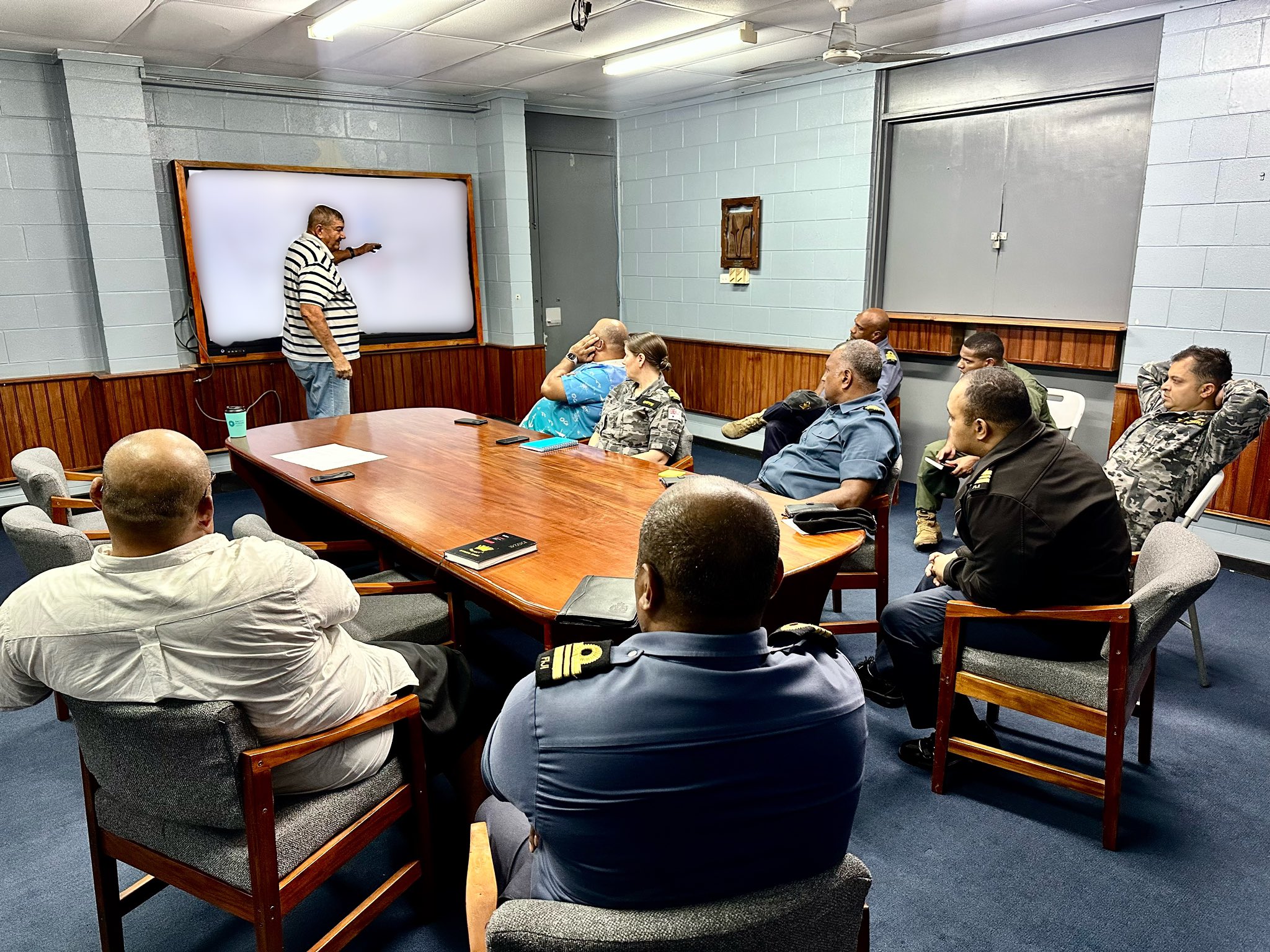The Republic of Fiji Navy has announced significant progress in the salvage operations of RFNS Puamau at Fulaga in the Lau group.
In a statement, the Navy confirmed that defueling operations, led by the naval vessel RFNS Savenaca, are nearing completion.
“Fuel has been successfully transferred to a nearby salvage vessel,” the Navy reported.
With defueling almost complete, the focus now shifts to the recovery phase. A second salvage vessel, equipped with specialist recovery equipment and personnel, is expected to arrive at Fulaga within the next 48 hours.
The Navy highlighted that the continuation of recovery efforts is dependent on weather conditions.
Since the incident, the vessel grounded on Fulaga’s reef has been under close surveillance.
“Only the stern compartment experienced water ingress, which has been isolated and is currently being managed,” the statement said.
The Navy’s salvage team is monitoring the vessel’s position and stability on the outer edge of the reef slope to ensure no further complications arise.
Looking forward, the Fiji Navy emphasised accountability and transparency regarding the incident.
“Due process with regards to the Board of Inquiry for this incident will convene soon to gather all factual evidence and formulate their findings and recommendations,” said the Commander of the Republic of Fiji Military Forces (RFMF), Jone Kalouniwai.
This inquiry aims to investigate the circumstances leading to the grounding and to recommend measures to prevent similar incidents in the future.
Meanwhile, the Australian Government will be footing the bill for the salvaging of grounded Fiji Navy patrol boat RFNS Puamau, says Maritime Safety Authority of Fiji (MSAF) chief executive officer Joeli Cawaki.
Speaking to the Fiji Times, Cawakisaid the Australian company, Perrott Salvage and Construction Pty Ltd, has been contracted to be salvage master for the operation.
RFNS Puamau ran aground on Fulaga Reef in the Lau waters last week, just one month after Prime Minister Sitiveni Rabuka commissioned it.
“For us (MSAF), our concern is the environment and also the safety. We’ve been told in the meeting this morning that through the Pacific Maritime Support from Australia, Australia will be doing all the work,” Cawaki said.
“There will be a company coming in from Australia to do this work. It’s part of the guarantee. They’ve done it for Samoa, they’ve done it for the other Pacific islands, and if worse comes to worst, they’ll have to take the Puamau back to Australia.
“But it’s up to them. If they can do it here, then good.”
He said the process of oil de-bunkering was currently underway at the incident site on the Fulaga reef in Lau, using an oil tank provided by South Sea Towage Pte Ltd.
“We are on the peripheral supporting. For us MSAF, we are on the supporting role, because it’s a maritime incident, to the Navy and also to the contractors that will be doing the job.
“As we speak, they’re still de-bunkering. So, they’re taking oil out of the vessel and into a tank. We have our booms and also, we have our skimmers, which we have offered them.”
Cawaki said MSAF was also ready to use its slipways or one of its two floating docks to assist if needed.














